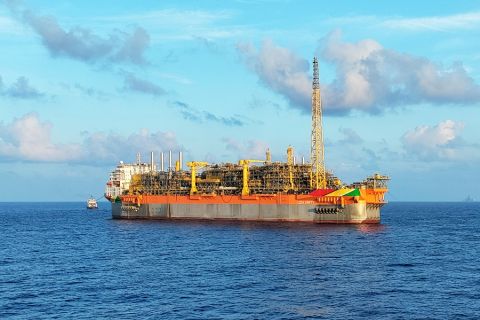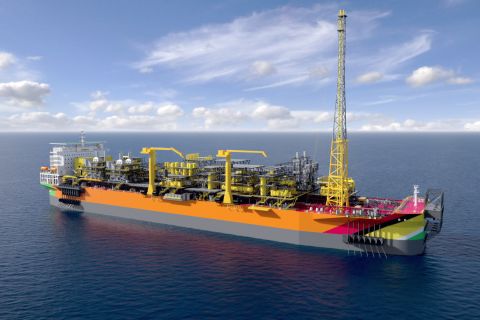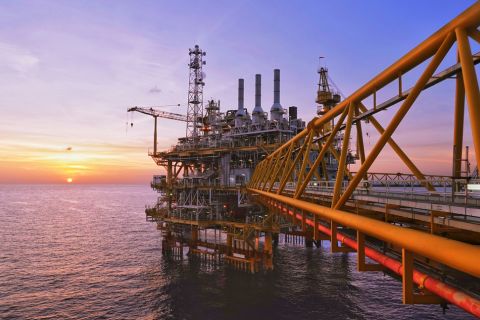Halliburton Co.'s (NYSE: HAL) stock took a beating in the wake of a $30-million increase in its asbestos-liability exposure. Though $30 million alone would not crater the balance sheet of the world's largest oil-service company, investors feared this is just the beginning of a problem that could haunt the Dallas firm for a very long time. Halliburton's stock closed at $12 the day a verdict in one case was announced, down 42% from its previous close and from a 52-week high of about $50. At press time, it was about $11. "While the stock heavily discounts Halliburton's asbestos exposure, the specter of lawsuits spiraling out of control is likely to adversely impact the stock for the foreseeable future, and thus we cannot recommend it at this time," says Geoff Kieburtz of Salomon Smith Barney Inc. in New York. Kieburtz slashed his price target for Halliburton to $20 from $36. According to Halliburton, a Baltimore jury returned verdicts on Dec. 5 against several defendants, including subsidiary Dresser Industries Inc. Five plaintiffs alleged they were exposed to asbestos through products of Harbison-Walker Refractories, which Dresser spun off in 1992. Halliburton acquired Dresser six years later. "Dresser believes the trial court committed numerous errors, and the trial evidence did not support the verdicts," Halliburton said in a statement. "Dresser intends to challenge the verdicts by post-trial motion and, if those motions are not successful, to pursue an appeal aggressively. In any event, if our appeals do not succeed we have substantial insurance that we expect will pay most of any verdict amount." Halliburton's asbestos problems seem to be snowballing. On Nov. 29, 2001, a Texas district court in Orange, Texas, entered a judgment against Dresser on a $65-million jury verdict that was rendered in September 2001. Dresser intends to appeal. The same district court entered three additional judgments against Dresser totaling $35.7 million. These related to an alleged breach of settlement agreements. According to Halliburton, these agreements bind Harbison-Walker as the obligated party, not Dresser. Dresser intends to appeal the judgements on the grounds that it was not a party to the settlement and it did not authorize anyone to settle on its behalf. In addition, a Mississippi jury recently said that Halliburton should pay $21 million to two plaintiffs there. These recent cases run counter to Halliburton's long history with asbestos cases. The company has resolved more than 194,000 asbestos claims during the last 25 years for "reasonable aggregate amounts." "The [recent] verdicts and judgments...were significantly outside our past experience," Halliburton said. "During the last several months Dresser and Kellogg Brown & Root have achieved favorable results in a number of other asbestos lawsuits where Dresser and KBR have been found to have no liability or relatively small amounts of liability. We believe that our management of asbestos claims is reasonable and effective and, over time, produces better results than the strategies followed by some other asbestos defendants." Gary Russell of Frost Securities in Dallas believes it's too early to forecast a dire outcome. "We do not believe Halliburton is at risk of bankruptcy. Halliburton has never paid more than $1.8 million on any single claim, after appropriate appeals have been exhausted," he says. "We believe Halliburton has more than adequate insurance coverage and balance-sheet reserves to remain solvent despite the mounting asbestos litigation." Russell reiterated his Buy on HAL with a $29 target. "Despite the more modest near-term market outlook, we remain convinced that Halliburton's 12-month outlook supports a much higher stock price." Allen Brooks of CIBC World Markets in Houston reiterated his Buy and $24 target. "In its annual report, Halliburton's insurer, Equitas, stated that it could withstand 26 years of claims at the current rate. The strong financial resources help reassure us that asbestos will not cripple the company." -Jodi Wetuski
Recommended Reading
E&P Highlights: Feb. 26, 2024
2024-02-26 - Here’s a roundup of the latest E&P headlines, including interest in some projects changing hands and new contract awards.
Exxon Ups Mammoth Offshore Guyana Production by Another 100,000 bbl/d
2024-04-15 - Exxon Mobil, which took a final investment decision on its Whiptail development on April 12, now estimates its six offshore Guyana projects will average gross production of 1.3 MMbbl/d by 2027.
Exxon Mobil Green-lights $12.7B Whiptail Project Offshore Guyana
2024-04-12 - Exxon Mobil’s sixth development in the Stabroek Block will add 250,000 bbl/d capacity when it starts production in 2027.
Pitts: Heavyweight Battle Brewing Between US Supermajors in South America
2024-04-09 - Exxon Mobil took the first swing in defense of its right of first refusal for Hess' interest in Guyana's Stabroek Block, but Chevron isn't backing down.
Equinor Receives Significant Discovery License from C-NLOPB
2024-02-02 - C-NLOPB estimates recoverable reserves from Equinor’s Cambriol discovery at 340 MMbbl.





